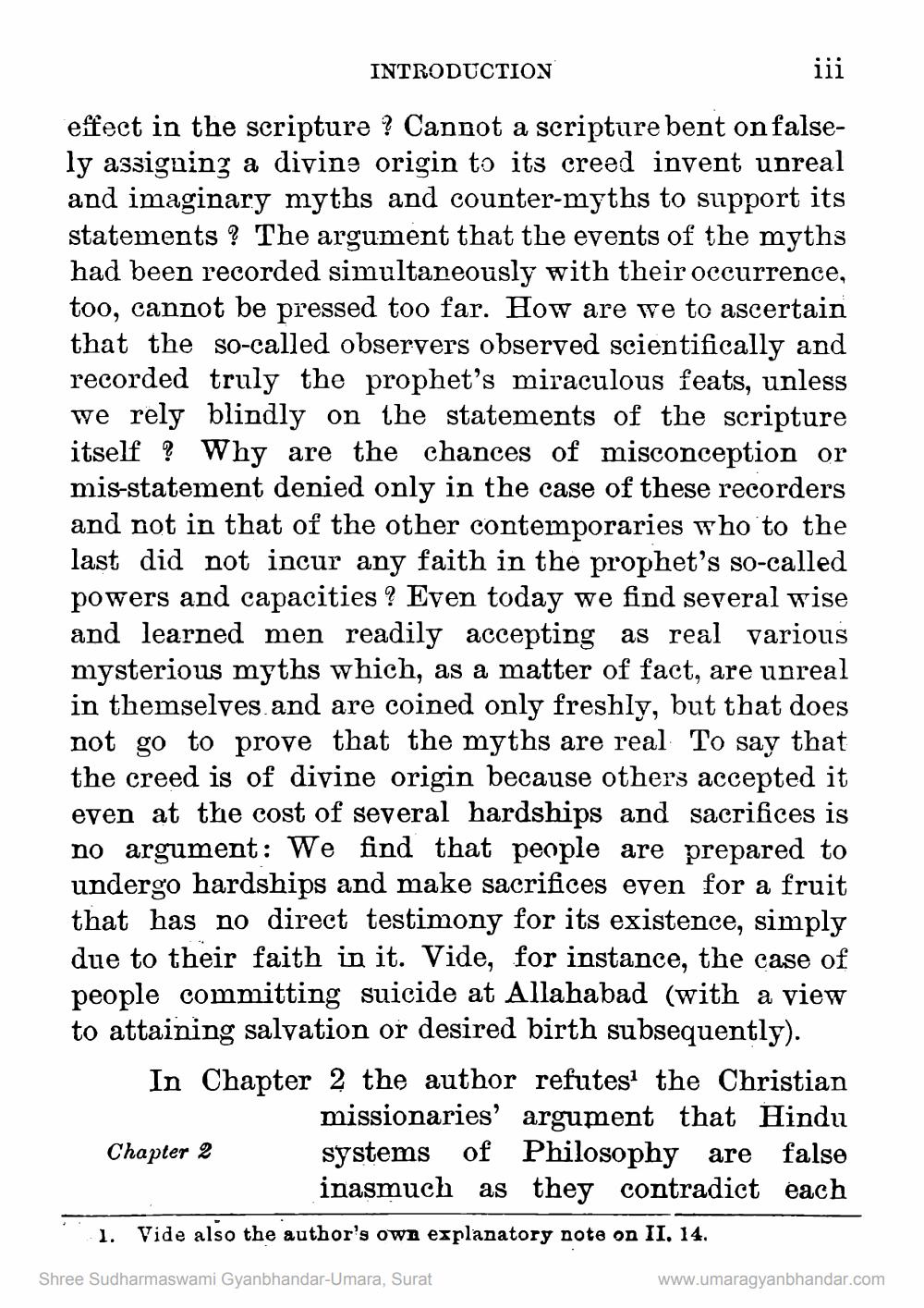________________
INTRODUCTION
iii
effect in the scripture ? Cannot a scripture bent on falsely assigning a divine origin to its creed invent unreal and imaginary myths and counter-myths to support its statements ? The argument that the events of the myths had been recorded simultaneously with their occurrence, too, cannot be pressed too far. How are we to ascertain that the so-called observers observed scientifically and recorded truly the prophet's miraculous feats, unless we rely blindly on the statements of the scripture itself ? Why are the chances of misconception or mis-statement denied only in the case of these recorders and not in that of the other contemporaries who to the last did not incur any faith in the prophet's so-called powers and capacities? Even today we find several wise and learned men readily accepting as real various mysterious myths which, as a matter of fact, are unreal in themselves and are coined only freshly, but that does not go to prove that the myths are real To say that the creed is of divine origin because others accepted it even at the cost of several hardships and sacrifices is no argument: We find that people are prepared to undergo hardships and make sacrifices even for a fruit that has no direct testimony for its existence, simply due to their faith in it. Vide, for instance, the case of people committing suicide at Allahabad (with a view to attaining salvation or desired birth subsequently). In Chapter 2 the author refutes the Christian
missionaries' argument that Hindu Chapter 2
systems of Philosophy are false
inasmuch as they contradict each 1. Vide also the author's owI explanatory note on II. 14.
Shree Sudharmaswami Gyanbhandar-Umara, Surat
www.umaragyanbhandar.com




